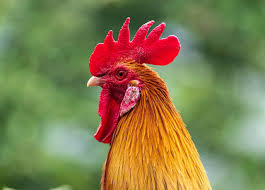Colistin Sulfate
Name:
Colistin Sulfate
Common Capacity:
- Water Soluble Powder: 1KG/bag, 5KG/bag, 10KG/bag
Common Concentration:
- Water Soluble Powder: 10%, 20%
Applicable Animals:
Colistin Sulfate is a polypeptide antibiotic that primarily exerts its bactericidal effect by damaging bacterial cell membranes, increasing cell membrane permeability, and leading to leakage of bacterial contents. Its antibacterial spectrum is mainly against Gram-negative bacteria, such as E. coli, Salmonella, and Pseudomonas. As it is minimally absorbed in the gastrointestinal tract, it is mainly used to treat gastrointestinal infections caused by sensitive bacteria.
Applicable Animals in Global Animal Husbandry:
- Monogastric Animals (Pigs): Primarily used for the prevention and treatment of intestinal infections in pigs caused by sensitive Gram-negative bacteria, such as ileitis, E. coli disease (piglet yellow and white scour, edema disease), and salmonellosis.
- Poultry (Chickens, Ducks, Geese, etc.): Primarily used for the prevention and treatment of intestinal bacterial infections such as E. coli disease and salmonellosis in poultry.
- Other Animals: In specific cases, it can also be used in other animals sensitive to Colistin, but under veterinary guidance.
Usage and Dosage:
The usage and dosage of Colistin Sulfate vary depending on the animal species, disease type, and drug concentration. The following are reference dosages based on common concentrations:
Water Soluble Powder (Mixed with drinking water or feed):
- Pigs (Mixed with drinking water or feed):
- Typically, orally administer approximately 50,000 – 100,000 IU (International Units) of Colistin per kg body weight daily, divided into 1-2 doses, for 3-5 consecutive days.
- Example for 10% Colistin Sulfate Water Soluble Powder (assuming 1 gram of active ingredient ≈ 20,000,000 IU):
- Mixed feed: Add approximately 50-100 grams of this product per ton of feed, for 5-7 consecutive days.
- Drinking water: Add approximately 0.5-1 gram of this product per liter of drinking water, for 3-5 consecutive days.
- Poultry (Mixed with drinking water or feed):
- Typically, orally administer approximately 75,000 – 150,000 IU of Colistin per kg body weight daily, divided into 1-2 doses, for 3-5 consecutive days.
- Example for 10% Colistin Sulfate Water Soluble Powder:
- Mixed feed: Add approximately 75-150 grams of this product per ton of feed, for 3-5 consecutive days.
- Drinking water: Add approximately 0.75-1.5 grams of this product per liter of drinking water, for 3-5 consecutive days.
Dosage by Growth Stage:
- Piglets/Nursery Pigs: For the prevention and treatment of yellow and white scour and edema disease caused by E. coli around weaning and during the nursery period.
- Growing-finishing Pigs: To control intestinal infections caused by Gram-negative bacteria.
- Chicks/Broilers: For the prevention and treatment of early E. coli disease and salmonellosis.
Applicable Diseases and Symptoms:
Colistin Sulfate is primarily used for the treatment of intestinal infections caused by Gram-negative bacteria sensitive to Colistin.
- Pigs:
- E. coli Disease: Piglet yellow and white scour, edema disease in weaned piglets.
- Salmonellosis: Manifested as diarrhea, fever, and depression.
- Ileitis: Intestinal inflammation caused by Gram-negative bacteria, characterized by chronic diarrhea and stunted growth.
- Poultry:
- E. coli Disease: Omphalitis, yolk sac infection, colibacillosis, peritonitis.
- Salmonellosis: Manifested as diarrhea, lethargy, and mortality.
Precautions:
- Withdrawal Period:
- Pigs: 1 day
- Chickens: 1 day
- Nephrotoxicity: Colistin Sulfate is minimally absorbed orally, but caution is still advised in animals with renal insufficiency, as it may increase kidney burden.
- Incompatibilities: Avoid co-administration with certain highly toxic drugs, especially those with nephrotoxic effects.
- Solubility: Water soluble powder should be fully dissolved before use to ensure uniform drug distribution and prevent clogging of the drinking water system.
- Duration of Treatment: Not recommended for long-term continuous use to reduce the development of drug resistance. Drug rotation or combination therapy may be considered if necessary.
- Storage: Store in a cool, dark, and tightly sealed place.
Contraindications:
- Contraindicated in animals with hypersensitivity to Colistin.
- Contraindicated in animals with severe renal dysfunction.
- Not for use in laying hens during egg production.
Post-Administration Care:
- Observe Treatment Efficacy: Continuously monitor the animal’s clinical symptoms, such as stool consistency, feed intake, and mental state, to assess drug efficacy.
- Electrolyte Supplementation: For animals with severe diarrhea, promptly supplement electrolytes and nutrients to prevent dehydration and malnutrition.
- Environmental Hygiene: Enhance cleaning and disinfection of the rearing environment, especially fecal disposal, to reduce the spread of pathogens.
- Biosecurity: Strictly implement biosecurity measures, such as limiting access for personnel and vehicles, and regular disinfection, to control disease transmission.
- Enforce Withdrawal Period: Strictly adhere to the specified withdrawal period to ensure drug residues in animal products comply with safety standards.
Applicable Animals
Animal species suitable for this veterinary medication

